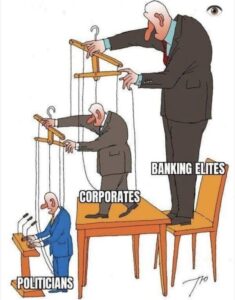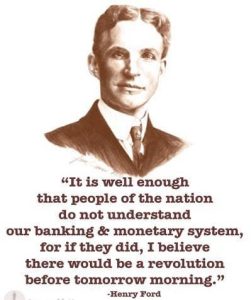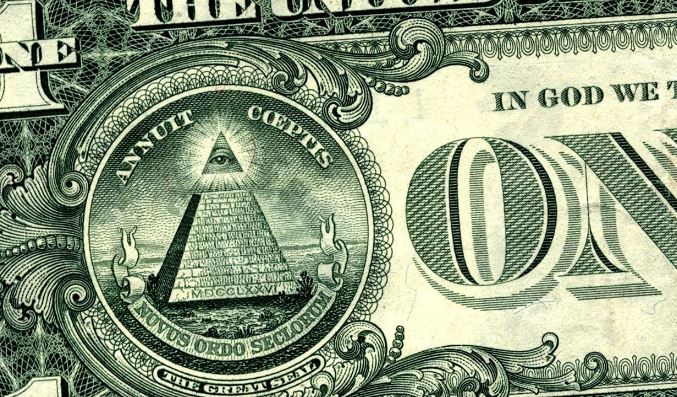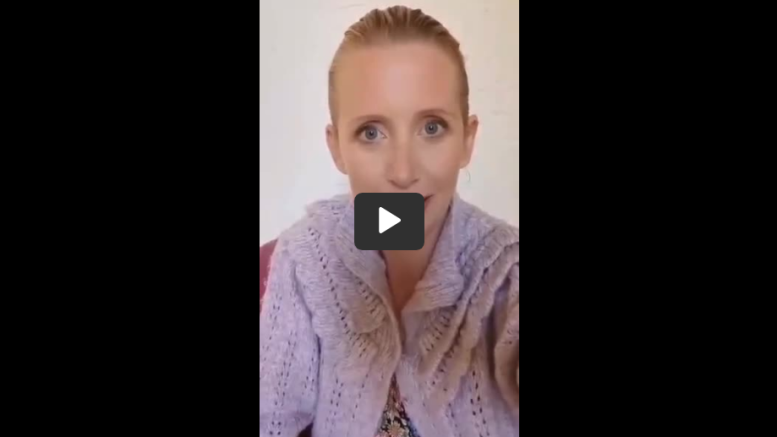What is the BIS? What’s the difference between the IMF & World Bank? What is Bretton Woods?
Video explainers of the Bank for International Settlements (BIS), the difference between the International Monetary Fund (IMF) and the World Bank, as well as the Bretton Woods conference.

The “bank heads” of the world meet confidentially “in person” every two months to secretly discuss and come to an agreed-upon consensus to manage/control the world.
This is one step above the world’s corporations, governments, elite gatherings; Bilderberg, DAVOS, the WEF, YGL, the G7, the IMF, the WHO, the Club of Rome, BlackRock, Vanguard, State Street, the World Bank, the United Nations, Committee of 300, CIA, BigTech, BigOil, Trilateral Commission, CFR, and so on… (albeit the same players are probably intertwined in all of these).
Everyone in the whole world is at the mercy of these bi-monthly meetings and whatever happens behind these “closed-to-public, closed-to-governments, closed-to-corporations, closed-to-everyone” doors.
And now they want central control of all of us.

(Above the bank-heads is a whole different debate that takes you back centuries, but understanding the BIS is simple enough for even modern-day children without any knowledge of history to understand the dangers we now face if we don’t wake the others…. Although thousands of meetings and groups meet all over to influence in their own way, all of which they are involved in, this bi-monthly meeting is the “final say,” the “final group-think,” and the “final consensus” before it actually affects everyone; I see the BIS as the “War Room” where the actual decisions are enacted and fed down to the rest of us).
First, why do we care? (1 minute)
BIS Chief (October 2020):
“with CBDC, the Central Bank will have absolute control“
“For example in cash we don’t know who is using a $100 bill […] a key difference with the CBDC is that the Central Bank will have absolute control on the rules and regulations that we determine the use of that expression of central bank liability, and also we will have the technology to enforce that. […] ”
Report from the Bank of International Settlements (BIS) found that almost 90 percent of national central banks are planning to launch their own CBDC for release to the general public.
Gaining momentum – Results of the 2021 BIS survey on central bank digital currencies (May 2022 pdf)
What is the Bank for International Settlements (BIS)?
- Founded: January 20, 1930
- Website: bis.org
- Clip 1: This is the BIS
- (Official YouTube channel for the Bank for International Settlements)
- Feb 3rd 2022
- (Official YouTube channel for the Bank for International Settlements)
- Clip 2: Have you heard of the Bank for International Settlements?
- (Finance Optimum YouTube channel)
- Nov 14th 2020
- (Finance Optimum YouTube channel)
What is the Bank for International Settlements (BIS)? (Wikipedia)
The Bank for International Settlements (BIS) is an international financial institution owned by central banks that “fosters international monetary and financial cooperation and serves as a bank for central banks.”
What is the Bank for International Settlements (BIS)? (Official Bank for International Settlements)
- “We’re very important”…
- “We act as a meeting place for central bankers from all over the world – every 2 months”
- “Main purpose is to build consensus amongst central banks and supervise the authorities”
- “We kick out our hired-story-narrator when the meeting starts because…
- “the governors can only be really open and honest if confidentiality is maintained… “
- “…and that is what makes these meetings so valuable and important”
- “the governors can only be really open and honest if confidentiality is maintained… “
What is the Bank for International Settlements (BIS)? (Finance Optimum)
“Possibly the most powerful bank that most people haven’t heard of–known as the central bank for central banks.”
The BIS was set up in Basel, Switzerland, in 1930 to facilitate World War I reparations payments from Germany:
- It was partly the brainchild of Montagu Norman, the Depression-era Governor of the Bank of England. Norman, or rather those he was representing, wanted a new bank that would serve as the world’s first international financial institution.
- A meeting place for central bankers. Away from the demands of politicians and the prying eyes of nosy journalists, the bankers would bring some much needed order and coordination to the world financial system.
- Norman’s proposal gained an eager advocate in Hjalmar Schacht, the Reichsbank president.
- The Reichsbank was the Central Bank of the German Reich at the time.
- Schacht saw the BIS as a way of easing Germany’s reparations burden, but it became far more than that:
- The BIS helped to sell gold seized by the Nazis from occupied nations and acted as a conduit of hard currency that allowed the Third Reich to buy raw materials throughout the war – to the point where Emil Puhl, the Reichsbank Vice President, described the BIS as the “only real foreign branch” of the Reichsbank.
- The BIS’s morally tainted wartime experience almost sank it at the 1944 Bretton Woods Conference, when Treasury Secretary Henry Morgenthau and lead American delegate to the conference Harry Dexter White sought to liquidate it…while setting up the post-war international system dominated by the World Bank and International Monetary Fund.
- However, the BIS’s powerful friends…intervened to save it.
- Since then, the BIS has continually reinvented itself.
In the previous video we spoke about the Petrodollar Era, and the massive impact that this has had on foreign policy.
It was the CIA who imported a new leader for the so called “people’s rebellion” in Libya:
- Indeed, Khalifa Hafter had spent the past 20 years living with no known source of income just five miles away from the CIA’s headquarters in Langley.
- Cheney expressed great concern in a speech in 1999 that foreign governments were controlling oil.
- “While many regions of the world offer great oil opportunities, the Middle East, with two thirds of the world’s oil and the lowest cost, is still where the prize ultimately lies.”
- Wesley Clark, a former Supreme Allied Commander of Nato, claims that in 2001, a general in the Pentagon showed him a piece of paper…
- This agenda fitted perfectly with the famous think-tank called the Project for the New American Century.
- Of the twenty-five people who signed PNAC’s founding statement of principles, ten went on to serve in the administration of U.S. President George W. Bush, including Dick Cheney, Donald Rumsfeld, and Paul Wolfowitz…
- This agenda fitted perfectly with the famous think-tank called the Project for the New American Century.
- So how is this all relevant to the BIS?
- Well, the Libyan government controlled more of its oil than any other nation on earth and it is the type of oil that Europe finds easiest to refine – OK that seems like incentive enough to impose democracy – but there’s more:
- Libya also controlled its own finances.
- For the seven countries named by Clark, what did they have in common?
- None of them were listed among the member banks of the BIS, putting them outside the long regulatory arm of the central banker’s central bank in Switzerland.
- For the seven countries named by Clark, what did they have in common?
- Libya also controlled its own finances.
- Well, the Libyan government controlled more of its oil than any other nation on earth and it is the type of oil that Europe finds easiest to refine – OK that seems like incentive enough to impose democracy – but there’s more:
What about today?
- Well, naturally, the BIS is preaching about the importance of Central bank Independence.
- As well as this, they have a new innovation hub, incorporating research into Central Bank Digital Currencies.
- The BIS continues to operate with less disclosure than the central banks that make up its executive committee.
- Its assets are protected against seizure.
- Its process of establishing capital requirements for banks remains…opaque.
Vid Refs:
- Inside the ‘Tower of Basel’ (video deleted)
- Bank for International Settlements: Libra needs to make a better case for itself, says BIS
- The new role of Central Banks
- Part 12: Gen. Wesley Clark Reveals Middle East Invasion Was Pre-Planned & Iran is NEXT
- Spotlight on Waddesdon Manor: Rothschild Green Estate, Home of Green Festival 2021
What is the difference between the International Monetary Fund (IMF) and the World Bank? (& what is Bretton Woods?)
(mainstream official definition)
The Bretton Woods Conference took place in 1944, and it was about creating the new international financial architecture that would follow the end of World War II—it was where the IMF and the World Bank originated.
- Both the IMF and the World Bank were conceived at the United Nations’ Bretton Woods Conference in July 1944.
- “Top economic minds from 44 countries gathered at a hotel in New Hampshire to come up with a new framework for the international monetary system.”
- “There was a general consensus that the old system of exchange rates and payments had failed, leading to the Great Depression, currency devaluations and the collapse of the gold standard.”
- “Famed economist John Maynard Keynes, representing the United Kingdom at Bretton Woods, and Harry Dexter White, the U.S. Treasury representative, clashed over the terms of the new system. After three weeks, a deal was reached creating two distinct institutions: the International Monetary Fund and the International Bank for Reconstruction and Development, soon to be known as the World Bank.”
- The IMF and the World Bank are closely linked – so close that their headquarters are across the street.
- The IMF was tasked with overseeing a system of fixed exchange rates linking global currencies to the U.S. dollar, which was pegged to gold. The fund was also in charge of issuing short-term loans to countries struggling to meet their balance of payments.
- Today the IMF keeps tabs on the global economy, provides technical assistance and training to implement economic policies and provides loans to member countries in need of financing.
- The main goal of the World Bank was to give financial assistance to countries – mainly in Europe – that needed to rebuild after the war.
- The World Bank has focused primarily on development and reducing poverty. (really? lol, you are doing a lousy job…unless your job is to reduce poverty potentials of the elite..)
- The IMF was tasked with overseeing a system of fixed exchange rates linking global currencies to the U.S. dollar, which was pegged to gold. The fund was also in charge of issuing short-term loans to countries struggling to meet their balance of payments.
- Both institutions include 189 member countries and have vast operations around the world. The World Bank receives funding by issuing bonds to global investors, while the IMF is financed by quotas from member countries.
- The institutions have their share of critics, in part because of the conditions attached to their loans.
See also:
Central Bank Digital Currency
“Internet Of Things” Patent
Why Does The IMF Need The Whole World Injected?
Transhumanism, CBDCs, Nano-Network C19 Shots & The Coming Social Credit System
Posts tagged: IMF | BIS | World Bank | CBDC

Site Notifications/Chat:
- Telegram Post Updates @JourneyToABetterLife (channel)
- Telegram Chatroom @JourneyBetterLifeCHAT (say hi / share info)
- Gettr Post Updates @chesaus (like fakebook)
Videos:




![What the HELL is going on in Schools? [Bernie Finn MP]](https://pennybutler.com/wp-content/uploads/2022/02/speaktruth--777x437.jpg)

